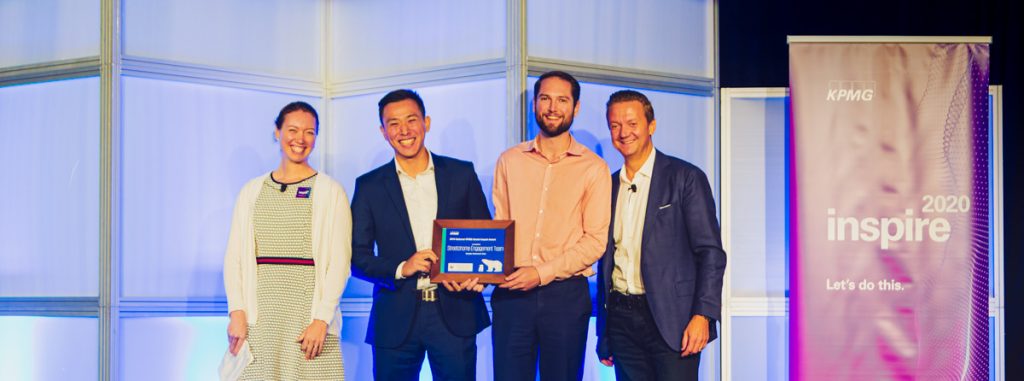Every business case KPMG has developed for Streetohome has built a solid plan for innovative models that fill gaps in the homelessness service system and help individuals move along their preferred life path. We are pleased to announce that the recent Smart Cities – Life Intentions business case has won KPMG’s National Social Impact Award. Not only that, but the dedicated team of volunteer consultants have decided to donate the prize money back to Streetohome.
“We have a lot of faith in the project, and see the potential it has. Beyond that, we have seen the impact Streetohome has made through their supportive housing and homelessness prevention projects,” says Michael Simion, Management Consultant, KPMG Canada. “We’ve set the business case up to show the impact [the Life Intentions initiative] will have, and hope that a non-profit service provider will step up, take ownership and partner with Streetohome.”
The Smart Cities – Life Intentions initiative explores opportunities to alleviate the effects of: the stigma of homelessness; and disconnection from services that many vulnerable individuals with lived experience of homelessness, and/or those who are at-risk of homelessness, face.
The business case was developed by Chris Williamson, Jason Cion, Elisa Liu, Ross Ryken, Michael Simion and Joanna Stewart. It critically assessed the potential of Streetohome’s initial pilot project that entailed sharing a paper version of the Exploring Your Life Intentions self-assessment and a companion Guide to Services with tenants living in eight supportive housing buildings in Vancouver. This provided an opportunity for individuals to explore their needs, prioritize a reasonable goal and find suitable services that could help them move along their preferred life path.
The business case also advocated for converting the paper tools into a digital application. Enhancements would include a custom-tailored list of resources specific to each individual’s unique needs, goals and preferences with options to reward progress and send notifications and reminders to promote improved outcomes.
“The paper and digital versions are intended to provide a means of improving the interaction between vulnerable individuals and systems of support. The app has an added benefit of tailoring support opportunities using a best-fit algorithm that will promote a better match in support services and hopefully improve individual outcomes,” says Jason Cion, Data Scientist, KPMG Canada. “We see the effects of homelessness every day, and we really felt the importance of the work and the impact it could have on vulnerable individuals.”
Service providers are invited to take advantage of the paper versions of these tools while Streetohome prepares a Request for Proposals for the development of the digital application. The RFP will be released in the new year and it is anticipated that the app will be launched within the year.
The tools, business case and RFP updates can be found at http://bit.ly/SCLITools.
Thank you KPMG.

